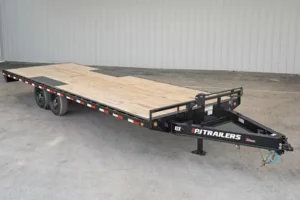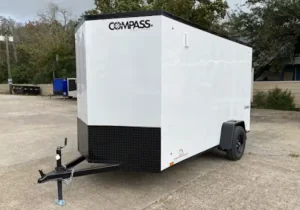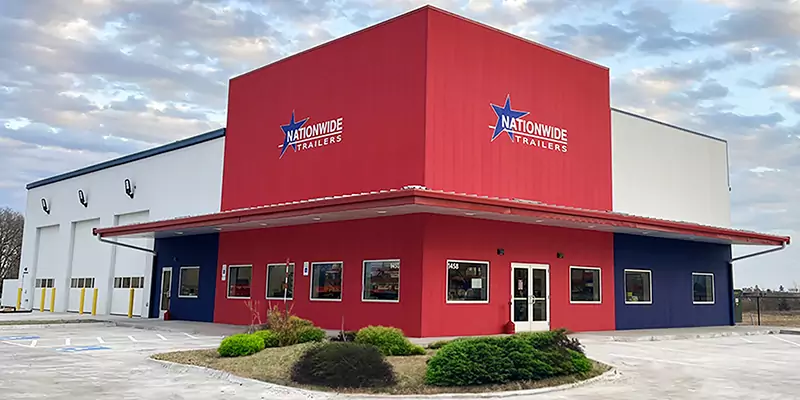Towing a trailer, whether for a cross-country adventure, hauling equipment, or transporting a vehicle, requires more than just attaching a trailer to your vehicle and hitting the road. It demands an understanding of safe towing practices to ensure both your safety and that of other road users. This comprehensive guide explores the essentials of towing safely across America, from selecting the right equipment to preparing for your trip.
The Importance of Proper Towing Equipment
The foundation of safe towing lies in using the correct equipment. This includes choosing the right type of trailer and hitch system for your vehicle. Nationwide Trailers, with locations from Des Moines, IA, to Tulsa, OK, offers a vast selection of trailers to suit every need, be it cargo, utility, flatbed, or specialty trailers.
Selecting the right trailer is just the beginning. Ensuring you have high-quality trailer parts, such as axles, frame & suspension systems, couplers & jacks, and the correct tires, is crucial. Nationwide Trailers’ Parts Guide provides an extensive range of options, including accessories and load-securing equipment, to make sure your trailer is equipped for the journey ahead.
Best Practices for Loading and Distributing Weight
Properly loading and distributing the weight on your trailer can significantly impact towing safety. The goal is to maintain a balanced load, which helps prevent the trailer from swaying. Key tips include:
- Placing heavier items near the front of the trailer, close to the hitch.
- Ensuring even weight distribution on both sides.
- Securing all items to prevent shifting during transport.
Understanding Towing Capacity and Vehicle Compatibility
Before you tow, it’s essential to understand your vehicle’s towing capacity and ensure compatibility with your trailer. Overloading your vehicle or trailer can lead to significant safety risks, including decreased control and increased stopping distances. Always refer to your vehicle’s owner manual for specific towing guidelines and capacities.
Safe Driving Tips for Towing
Towing requires adjustments to your driving habits. Increased vehicle length, altered vehicle handling, and longer stopping distances are factors that must be considered. Here are some safe driving tips:
- Increase following distance to allow more time for stopping.
- Use wide turns to accommodate the additional length.
- Avoid sudden maneuvers that could cause the trailer to sway.
- Regularly check your mirrors to monitor the trailer and surrounding traffic.
Pre-Trip Checklist for Towing Safely
A pre-trip checklist is vital for ensuring both vehicle and trailer are ready for the road. This should include checking:
- Tire pressure and condition on both the vehicle and trailer.
- All lights (brake lights, turn signals, and running lights) are operational.
- Hitch system is correctly secured.
- Load is properly distributed and secured.
Conclusion
Towing safely is not just about protecting your cargo; it’s about ensuring the safety of all road users. By following these best practices and ensuring you have the right equipment, you’re well on your way to a safe and successful trip.
For those eager to learn more about safe towing practices or in need of high-quality trailer parts and accessories, Nationwide Trailers is your go-to source. With locations across the country and a commitment to providing top-notch customer service, we’re here to support your towing needs. Visit us today to ensure your next towing adventure is a safe one.



